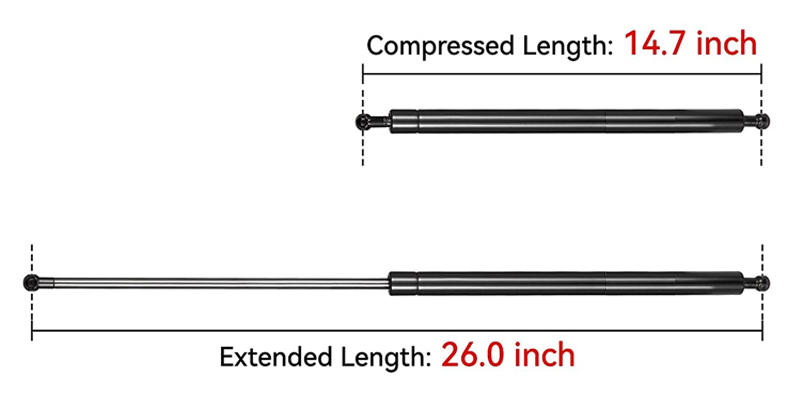The air pressure within gas springs is a critical factor that directly influences their performance. Gas springs are designed to provide a specific force and function within a defined pressure range. Both excessively high and low air pressure can have significant impacts on the functionality, safety, and lifespan of gas springs.
What are the effects of high and low air pressure?
1.Too High Air Pressure:
- Overextension and Damage:Excessive air pressure can lead to overextension of the gas spring, causing damage to the internal components. This may result in leakage, seal failure, or even structural damage to the gas spring.
- Reduced Lifespan:Operating gas springs at pressures beyond their designed limits can significantly reduce their lifespan. The increased stress on the components may lead to premature wear and failure.
2. Too Low Air Pressure:
- Reduced Lifting Force:Insufficient air pressure will result in a reduced lifting force. Gas springs rely on compressed gas to provide the necessary force for their intended function, and inadequate pressure can compromise their ability to support loads.
- Incomplete Extension:Gas springs may not fully extend to their intended position if the pressure is too low. This can affect the functionality of applications relying on precise positioning.
To ensure optimal performance and safety, it is essential to follow the manufacturer's recommendations regarding air pressure settings for gas springs,when you facing some question,please contact Guangzhou Tieying Spring Technology Co.,Ltd.Regular maintenance, inspections, and adherence to specified pressure ranges contribute to the reliable and safe operation of gas springs in various applications. If adjustments are needed, they should be made within the manufacturer's specified limits to avoid negative consequences.
Post time: Dec-19-2023

